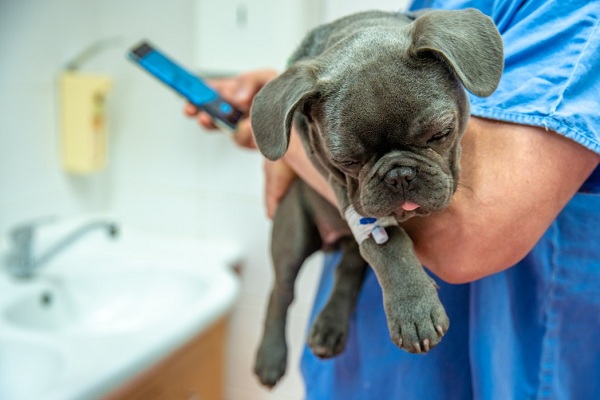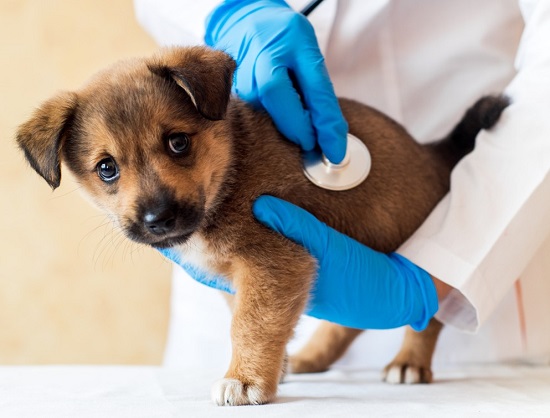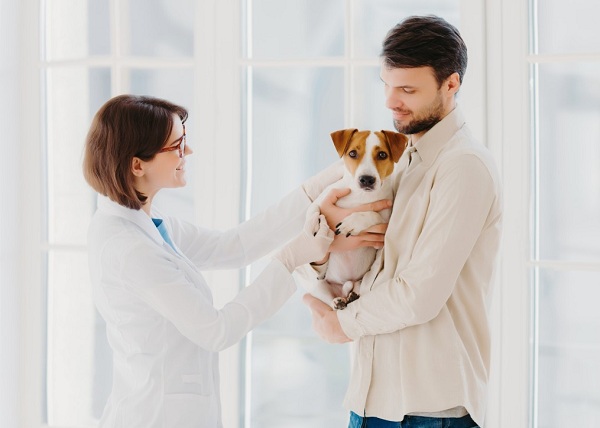If you are a dog owner, you need to find a local veterinarian. There are quite a few ways to search for a veterinarian. One of the ways is to explore online for veterinarians near you. You can also learn about the vets from your friends and on social media.
If you are moving to a new place, you can ask your existing vet for a referral. While you are looking for a vet, you should prepare a list of the crucial questions that you need to ask. Below are the questions you should find the answer to choose the right vet for your loved ones:
Questions You Should Ask Your Vet
1. What vet type do you require?
Different pet clinics provide veterinary services. However, all the clinics do not offer similar types of care services. For instance, some clinics specialize in processing dog vaccinations.
They help in keeping your pet vaccinated as per schedule. In these clinics, you cannot expect emergency care and medical follow-up procedures for your dog.
It is always good to grow a cordial relationship with your vet since you may need them at any hour. If the vet suits your dog, he or she may be the lifetime vet for your dog. General practice vet clinics provide treatment to dogs to cure sicknesses. They can do surgery on dogs. If required, they clean the dog’s teeth as well.
Many general practitioners have their vet clinics. All you need is to schedule an appointment and visit. Some vets operate out of a mobile unit or provide home call services. A few vets are known for providing emergency services.
The local pet hospitals provide all the pet-related treatments under the same roof. In these hospitals, urgent care and emergency units work where the veterinarians and veterinary nurses provide services 24*7.
The nurses are well-trained to treat sick pets even during emergencies due to poisonings, acute illness, trauma, and even chronic conditions.
In these clinics, critical cases are handled on a priority basis. So, if you go with your pet to a local pet hospital for a general vaccination, you may need to wait if the vets are attending an emergency case. A few emergency clinics have specialty infrastructure for pet treatments that furnishes up-to-date diagnostics for your pet.
It may happen that some vets cannot diagnose the problem in your dog. In such a case, it’s better to consult a different vet. Many honest good vets will themselves suggest you take your dog to a specialty hospital if they realize that your dog needs a course of action or has a condition beyond their usual training.
The veterinary specialists undergo years of additional training after completing general studies at veterinary school in their specialized field. Vet specialists are similar to specialist doctors treating humans.
The vet specialists can be cardiologists, dermatologists, oncologists, surgeons, critical care specialists, and internal medicine specialists. In many cases, even veterinary nurses are specialized in performing specialty training.
If you are interested in finding treatment for your dog at quite a cheap rate, you can visit some vet schools where vet students provide treatment under the supervision of a trained, certified professional.
2. How far is the vet from your home?
If your dog’s vet is away from your home that needs a driving of more than half an hour, you may stick with that vet if he/she is a good one. Else, it is better to find a clinic closer to your home. If your dog needs regular medication and a prescribed diet every day, it is better to have a vet nearby your house.
Another reason a pet owner doesn’t prefer long-distance vet visits is that their pets are not comfortable with the car journey. Few pet owners choose those vets that provide mobile or home services. It nullifies the stress-related issue for you and your loved ones.
3. Do the clinic hours fit your schedule?
The vets may be within your locality or the town or next to your place. But only the distance doesn’t matter. Even their operational hours should be convenient for you. So, you must be aware of their operational hours. Always make sure that the appointment hour doesn’t hamper your work schedule.
Check if it is available 24*7 or for any specific session of the day. Most general practices place appointment schedules. Some clinics operate on a walk-in.
4. What types of species do the vet clinic treat?
Many small clinics treat dogs and exotic animals like reptiles, birds, cattle, and horses. If you have a pet other than dogs, it is the right place for you to treat your pets.
Some clinics are exclusively for feline-like jaguar, lynx, etc. However, they mostly have different sections for different species. So, be sure that the clinic has some separate good facilities for dogs.
5. What types of medical services does the clinic offer?
Vet clinics generally offer general surgery, preventive care, dentistry, and sick care. The range of the facilities provided by these clinics depends on the availability of staff, equipment standards, and level of training. It is wise to go for facilities that include an in-house blood test and provide accurate results fast.
Some vets offer specialized treatments like acupuncture, ultrasound, rehabilitation medicine, orthopedic surgery, and more. You should be aware of the facilities and the medication provided by them. It will help you determine whether it is fit for you or not.
6. What non-medical services the clinic offers in addition to the general medical facilities?
In addition to the medical facilities, some veterinary clinics provide non-medical services like doggie day-care, training classes, boarding, and grooming.
7. What communication options do the clinics offer?
Generally, major vet clinics use the phone as a primary communication with clients. Nowadays, clinics use modern technology like messaging, emails, and video communication for vet telemedicine.
Some clinics have online appointment facilities. These are the most attractive options for people who prefer digital communication.
If English is not your mother tongue, it is significant to find a vet who can communicate with you properly. Some health issue needs to be clarified adequately. Therefore, it requires some essential questions need to be answered in the layman’s language.
8. Does the clinic have any special certifications or accreditation?
If you are in the US, it is better to choose a pet clinic affiliated with AAHA. It is one of the authorized bodies in America. The clinics with this standard need to maintain some training facilities and protocols.
9. How can you review the clinic online mode?
In the modern-day, the internet brings the world on your lap. So, make the best of it and explore the quality of the pet clinics online. Read the experiences of users online. It helps you choose the best vet. But, read the reviews thoroughly.
Don’t depend on two or three reviews. Read the reviews extensively. Evaluate the reviews to get a detailed picture of your local vet.
10. How can you pay a clinic?
Though few houses prefer in-house payment, most of them utilize third-party modes of payment. Pet insurance is a wise step to consider for your dog since it keeps the cost down. Most of these insurances are flexible and cost-effective. Be wise to choose the best policy for you that does not harm your budget.

 DogExpress
DogExpress





















 in Chandigarh, India.
in Chandigarh, India. 
